Ditapis dengan

The Stars Down to Earth and Other Essays on the Irrational in Culture
The essays collected here offer an analysis of the irrational dimensions of modern culture which is both timely and disturbing in the 1990s. Adorno's ideas are relevant to the understanding of phenomena as apparently diverse as astrology and "New Age" cults, the power of neo-fascist propaganda and the re-emergence of anti-Semitism, and the psychological basis of popular culture. The longest ess…
- Edisi
- -
- ISBN/ISSN
- 0415270995
- Deskripsi Fisik
- vii + 239 pg.; 25 cm.
- Judul Seri
- -
- No. Panggil
- 306 ADO s
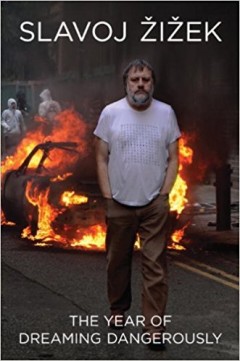
The Year of Dreaming Dangerously
Call it the year of dreaming dangerously: 2011 caught the world off guard with a series of shattering events. While protesters in New York, Cairo, London, and Athens took to the streets in pursuit of emancipation, obscure destructive fantasies inspired the world s racist populists in places as far apart as hungary and arizona, achieving a horrific consummation in the actions of mass murderer an…
- Edisi
- -
- ISBN/ISSN
- 9781781680421
- Deskripsi Fisik
- 135 pg.; 26 cm.
- Judul Seri
- -
- No. Panggil
- 303.4 ZIZ y
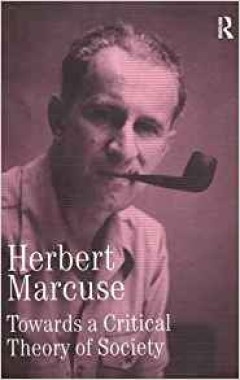
Towards a Critical Theory of Society
This second volume of Marcuse's collected papers includes unpublished manuscripts from the late 1960s and early 1970s, such as Beyond One-Dimensional Man, Cultural Revolution and The Historical Fate of Bourgeois Democracy, as well as a rich collection of letters. It shows Marcuse at his most radical, focusing on his critical theory of contemporary society, his analyses of technology, capitalism…
- Edisi
- -
- ISBN/ISSN
- 0203206606
- Deskripsi Fisik
- x + 242 pg.; 28 cm.
- Judul Seri
- -
- No. Panggil
- 301.01 MAR t

The Aesthetic Dimension: Taward a Critique of Marxist Aesthetic
Developing a concept briefly introduced in Counterrevolution and Revolt, Marcuse here addresses the shortcomings of Marxist aesthetic theory and explores a dialectical aesthetic in which art functions as the conscience of society. Marcuse argues that art is the only form or expression that can take up where religion and philosophy fail and contends that aesthetics offers the last refuge for two…
- Edisi
- -
- ISBN/ISSN
- 0807015180
- Deskripsi Fisik
- xiii + 88 pg.; 28 cm.
- Judul Seri
- -
- No. Panggil
- 335.411 MAR a

Bagaimana Sistem Jaminan Sosial Nasional Bekerja: Kumpulan Liputan Jurnalis T…
- Edisi
- -
- ISBN/ISSN
- -
- Deskripsi Fisik
- x + 183 hlm.; 20,5 cm.
- Judul Seri
- -
- No. Panggil
- 331.2 BAG b
- Edisi
- -
- ISBN/ISSN
- -
- Deskripsi Fisik
- x + 183 hlm.; 20,5 cm.
- Judul Seri
- -
- No. Panggil
- 331.2 BAG b
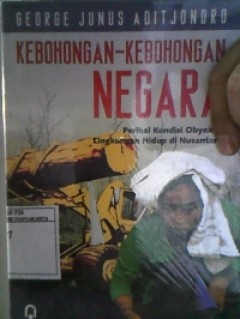
Kebohongan-kebohongan Negara: Perihal Kondisi Obyektif Lingkungan Hidup di Nu…
- Edisi
- -
- ISBN/ISSN
- 9793237635
- Deskripsi Fisik
- xvii + 412 hlm.; 21 cm.
- Judul Seri
- -
- No. Panggil
- 363.7 ADI k
- Edisi
- -
- ISBN/ISSN
- 9793237635
- Deskripsi Fisik
- xvii + 412 hlm.; 21 cm.
- Judul Seri
- -
- No. Panggil
- 363.7 ADI k
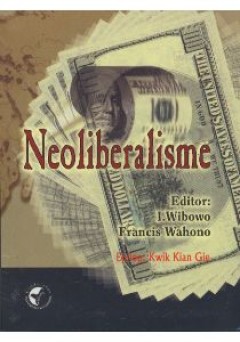
Neoliberalisme
Buku ini sangat membantu sekali menjawab dua pertanyaan saya: 1) asal muasal neoliberalisme, dan idelogi apa yg mendahuluinnya, kenapa dunia akhirnya berganti menggunakan neolib? 2) bagaimana bisa sampai ke Indonesia dan bagaimana realitanya sekarang ini? Pembahasan dimulai dengan awal mula Ideologi Neoliberalisme yang berasal dari ekonom Inggris, yang sekarang ini idelogi ini sudah sampai…
- Edisi
- -
- ISBN/ISSN
- 9793087102
- Deskripsi Fisik
- viii + 370 hlm.; 21 cm.
- Judul Seri
- -
- No. Panggil
- 320.5 NEO n
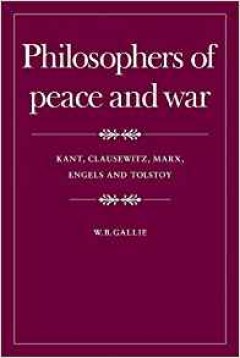
Philosophers of Peace and War: Kant, Clausewitz, Marx, Engels and Tolstoy
Intellectual eminence apart, what did Kant, Clausewitz, Marx and Engels, and Tolstoy have in common? Professor Gallic argues that they made contributions to 'international theory' - to the understanding of the character and causes of war and of the possibility of peace between nations - which were of unrivalled originality in their own times and remain of undiminished importance in ours. But th…
- Edisi
- -
- ISBN/ISSN
- 0521217792
- Deskripsi Fisik
- x + 147 pg.; 23 cm.
- Judul Seri
- -
- No. Panggil
- 327.172 GAL p

Kesehatan Mental
- Edisi
- -
- ISBN/ISSN
- -
- Deskripsi Fisik
- 135 hlm.; 21 cm.
- Judul Seri
- -
- No. Panggil
- 362.2 DAR k
- Edisi
- -
- ISBN/ISSN
- -
- Deskripsi Fisik
- 135 hlm.; 21 cm.
- Judul Seri
- -
- No. Panggil
- 362.2 DAR k
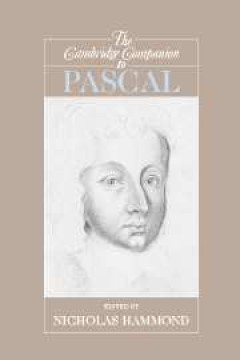
The Cambridge Companion to Pascal
- Edisi
- -
- ISBN/ISSN
- 9780521809245
- Deskripsi Fisik
- xvi + 287 pg.; 25 cm.
- Judul Seri
- -
- No. Panggil
- 301.092 CAM c.P
- Edisi
- -
- ISBN/ISSN
- 9780521809245
- Deskripsi Fisik
- xvi + 287 pg.; 25 cm.
- Judul Seri
- -
- No. Panggil
- 301.092 CAM c.P
 Karya Umum
Karya Umum  Filsafat
Filsafat  Agama
Agama  Ilmu-ilmu Sosial
Ilmu-ilmu Sosial  Bahasa
Bahasa  Ilmu-ilmu Murni
Ilmu-ilmu Murni  Ilmu-ilmu Terapan
Ilmu-ilmu Terapan  Kesenian, Hiburan, dan Olahraga
Kesenian, Hiburan, dan Olahraga  Kesusastraan
Kesusastraan  Geografi dan Sejarah
Geografi dan Sejarah